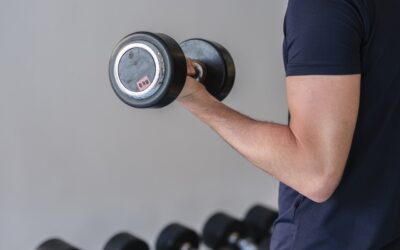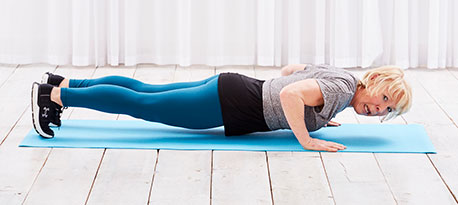How much we move our body influences our health. It’s one of the three main markers of health. How much and what we eat also plays a part. The third piece of that jigsaw is sleep, a topic absolutely fundamental to our wellbeing.
When we sleep our body and brain slows down to enable recovery. That recovery is what makes us fire on all cylinders the next day, mentally (that meeting, your mood, your attitude, your positivity) and physically (in your get-up-and-go, your ability to withstand long hours on your feet at work and your oomph in your fitness training sessions).
During the night we cycle through two categories of sleep: REM sleep (rapid eye movement when when we may dream) and non-REM sleep. The latter has three stages, one of which is ‘deep sleep’. That stage is vital, it’s the cherry on the top. It’s when our body repairs itself. When our bones and muscles grow, get denser, firmer…all those lunge and squats for strong legs, all those tricep kick-backs for firmer arms…it’s when we’re asleep that the muscle fibres you tore, will now be repaired to form bigger, stronger ones.
But changes don’t just happen in our muscles and bones. Good quality slumber affects our immune system, our memory, the appetite, blood pressure and cardiovascular health, thanks to nocturnal hormonal activity. Levels of Melatonin to help you feel drowsy and Growth Hormone (GH) to help cells repair increase. Production of Cortisol (the stress hormone) decreases as we sleep deeply but then ramps up early morning to help us kick start the day. Two other hormones, Ghrelin (which promotes hunger) drops and Leptin (helps us to recognise when we’re full) increases. You therefore don’t feel the need to eat.
So, if you’re cracking on with your New Year fitness plan and you’re placing overload on your muscles during the day – you’ve upped your squat weight, you’re running not jogging, you’re holding that plank for longer…all the time you will be breaking muscle fibres. You’re feeding them with protein (just like that Deadman woman said) and your sleep is deep and pretty much undisturbed then you’re nailing it. Well done.
If your sleep is anything but deep, then the body won’t recover and things happen which will cancel out your effort. Your level of Ghrelin will rise…(you get hungry)… and Leptin will decrease…(you don’t really feel full). That means you’re very likely to eat more than you need on a regular basis, especially carbs, the go-to food of comfort for tired people. Carbs mean more glucose. More glucose means more insulin and the potential for fat storage, type II diabetes and leptin resistance. The metabolism slows down (to conserve energy) and so the fat storage problem gets bigger. Literally. And hell hath no fury like a sleep-deprived woman whose trousers are too tight.
People generally underestimate the power of good sleep over their health so I’m purposely not toning this down. To keep mood positive (no, not singing Abba songs every 5 minutes, just even and positive), energy levels up, and your discipline to that fitness training schedule which took so much motivation to start, then sleep is part of that. Eat. Exercise and training. Sleep.
How? 1. Get natural daylight during the day. This increases day-time energy and hence sleep quality and duration. 2. Reduce screen time and consider special blue light glasses. 3. Watch caffeine and alcohol intake. 4. Watch sugar. Clients who take part in my Blast Plan without fail report better quality sleep simply because their sugar intake is reduced. Sugar has an effect on insulin levels, which in turn will influence leptin, ghrelin, oestrogen, progesterone and the rest of the gang. And the last thing you want for quality shuteye is hormone turbulence.
(Originally written for the March 2023 issue of Woman&Home magazine)




